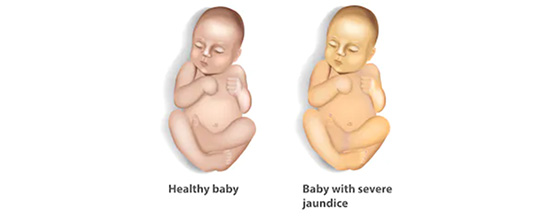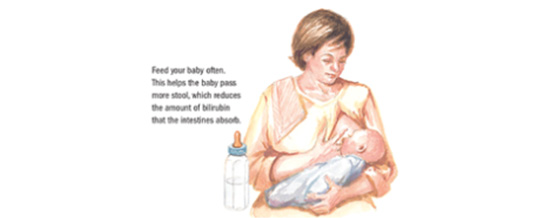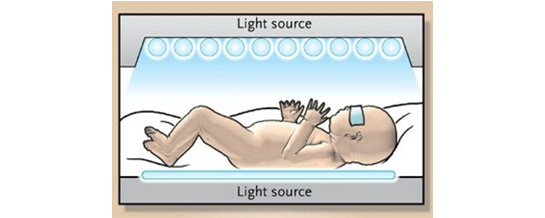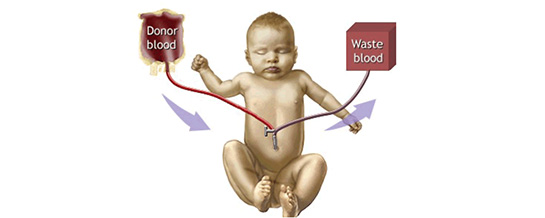How to Care for Your Baby with Jaundice
This leaflet will provide you with information about Neonatal Jaundice causes, symptoms, diagnosis, treatment and home care advice.

What is Neonatal Jaundice?
- Jaundice is the medical term for a yellow tinge in the skin's colour. The yellow colour is caused by a substance called bilirubin, which is made normally in the body—a higher level of bilirubin called "hyperbilirubinemia".
- Jaundice itself is not a disease but rather a sign of high blood bilirubin level. The excess of bilirubin at more than a certain level can cause brain damage.
- Different reasons can cause babies to have high bilirubin levels. For example:
- If babies are not getting enough milk.
- If babies are born early.
What are the symptoms of Neonatal Jaundice?
- Yellow discolouration of the skin. It starts first in the face, and then the chest, stomach area, arms, and then finally to the legs.
- In some babies, jaundice may appear over the entire body like a tan.
- The poo looks chalky or very pale, or the urine (pee) is continuously dark in colour.
How is Neonatal Jaundice diagnosed?
The doctor will ask few questions about your child's health and examine your child, and will request blood lest to check bilirubin levels in the blood
How is Neonatal Jaundice treated?
- Most babies do not require treatment. Mild jaundice in newborns usually gets better without treatment.
- The goal of treating jaundice is to efficiently and safely reduce the level of bilirubin
General treatment options include:
1. Increasing your baby's milk intake.

- Provide adequate breast milk to prevent and treat jaundice because it helps eliminate bilirubin in stools and urine.
- Aim for at least six wet diapers per day, the colour of your baby's stools will change from dark green to yellow, and s/he seems satisfied after feeding.
2. Phototherapy

- Phototherapy ("light" therapy) is the most common medical treatment for jaundice in babies.
- The baby's skin surface is exposed to special blue light, which breaks bilirubin and makes it easier to go away through the stool and urine.
- Treatment with phototherapy is successful for almost all babies.
3. Blood transfusion

- A blood transfusion may be considered in more severe cases, as very high bilirubin can cause harm to the baby.
- The transfusion replaces a baby's blood with donated blood to quickly lower bilirubin levels
When should I seek medical advice?
Seek medical advice if your baby:
- Has Jaundice during the first 24 hours after birth or yellowing of the palms of the hands and soles of the feet
- Is not feeding well.
- Is peeing and pooping less than usual.
- Has jaundice for more than two weeks.
- Your baby's jaundice goes away and then comes back.

